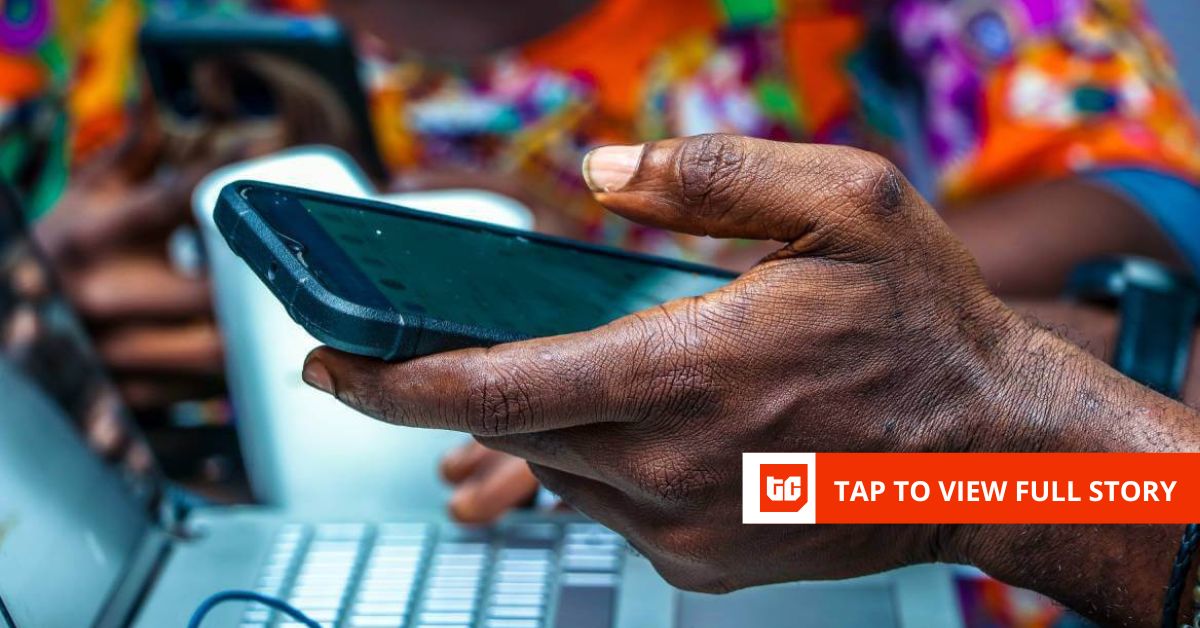Your monthly data bills, which have risen by more than 300% since 2023, are powering one of Nigeria’s biggest economic pillars. In the first half of 2025, the telecoms sector contributed ₦15.02 trillion ($10.17 billion) to the economy, a 25.8% jump from ₦11.94 trillion ($8.09 billion) in the same period of 2024.
Nigeria’s Gross Domestic Product (GDP) grew by 4.23% (year-on-year) in the second quarter of 2025, powered by growth in the agriculture, industry, and service sectors. The overall economy grew by 18.78% to ₦194.78 trillion ($131.93 billion) in H1 2025 compared to ₦163.99 trillion ($111.08 billion) in H1 2024.
Nigeria’s telecom sector has become essential to the country’s overall economic growth, extending beyond simply providing connectivity. Originally driven by voice calls, the industry now thrives on data. From streaming football and prayer sessions to endless YouTube binges, consumers’ shifting behaviour is powering one of the nation’s key economic drivers.
From voice to data dominance
Before 2019, calls drove telecoms growth, but since then, data has been the primary driver. MTN’s data revenue increased by 108.46% in two years to ₦1.59 trillion ($1.08 billion) in 2024. Voice revenues grew by 25.61% to ₦1.30 trillion ($880.55 million) during the same period. It stood at ₦1.23 trillion ($833.14 million) in the first half of 2025. Airtel’s data revenues are up 50.35% since 2020, hitting $654 million as of its fiscal year ended March 2024.
Airtel’s average data usage per customer has jumped 232.14% since March 2021, hitting 9.3 GB in June 2025, while MTN’s rose by 53.49% since December 2023 to 13.2 GB per customer in June 2025.
“The information and communications technology sector, which did not contract even during the 2020 recession, expanded by 10.3% y-o-y due to increased consumption of data services by households and businesses and higher subscriber numbers,” the World Bank said in 2023.
Streaming has been the core driver of growth as subscribers move from consuming content on large screens to small ones. Total data consumption stood at 1.15 million terabytes (TB) in August 2025, a 75.69% increase from the 655,879.86 TB in August 2023.
“Everything in my house runs on data. From my TV to my work, and my streaming her classes every day, it is all internet-dependent,” said Victor Onofomi, a digital marketer.
According to the Nigerian Communications Commission (NCC), one hour of video streaming consumes about 350 MB in standard definition and 1 GB in high definition.
GSMA, the global industry body for telecom operators, argues that the ability to connect is now more important than ever
The body reports that 86% of Nigerians online use mobile data for video calls, 82% for free online videos, and 79% for online entertainment. This has pushed Nigeria above the regional average for internet usage, with around 29% of the population depending on the internet.
Gaps remain
Broadband penetration — availability of high-speed internet access — stood at 48.81%, and six in ten Nigerians remained offline due to the high cost of smartphones, according to GSMA. In 2024, 130 million Nigerians had no mobile internet access, 10 million more than the previous year.
One of the main barriers for these Nigerians is affordability. “Affordability plays a significant role in device ownership and is the top-reported barrier to mobile internet adoption across LMICs,” GSMA said.
In rural Nigeria, only 39% of people had smartphones compared to 73% in urban areas in 2024.
Also, about 20 million Nigerians remain completely unconnected, according to Bosun Tijani, Minister of Communications, Innovation, and Digital Economy. Nigeria is laying 90,000 km of new fibre optic cables for $2 billion to close some of these gaps.”
Despite these challenges, internet usage is expected to grow in the country, with 32 million new unique mobile internet subscribers expected between 2025 and 2030. Nigeria’s smartphone market also rebounded by 10% in Q2, 2025, after declining by 7% in Q1, 2025, according to Canalys, highlighting increased affordability.
For industry leaders, the data demand telecoms boom has only just begun, with data consumption expected to continue to grow as more people come online.
“We are positioning ourselves to capture the opportunities of growth for the next 10 years. The demand for data in Nigeria is exceptional and will continue to grow,” Karl Toriola, CEO of MTN Nigeria, said in a TV interview in January 2025:
For consumers, every streamed football game, prayer session watched, and YouTube marathon isn’t just entertainment but the fuel driving Nigeria’s telecom industry.
Note: exchange rate used: ₦1,476.35/$
Mark your calendars! Moonshot by is back in Lagos on October 15–16! Meet and learn from Africa’s top founders, creatives & tech leaders for 2 days of keynotes, mixers & future-forward ideas. Get your tickets now: moonshot..com












